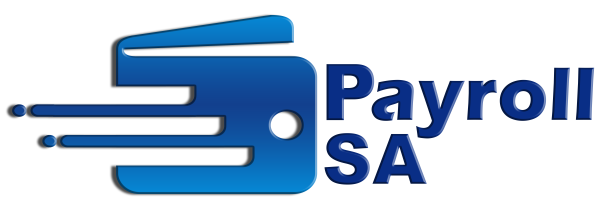Employer’s Guide
Dear Client,
Thank you for choosing Payroll-SA as your preferred Domestic workers Employment Compliance provider.
Applicable Acts and Legislation
- The Basic Conditions of Employment Act, No. 75 of 1997
- The Unemployment Insurance Fund Act, No. 63 of 2001
- Sectoral Determination 7 – Domestic Workers Act
- Compensation for Occupational Injuries and Diseases Act, No. 130 of 1993 as amended by Act 61 of 1997
Included in this Employer’s Guide
- Summary of the abovementioned Acts
- Labour Guide
- Legal Guidelines
- National Minimum Wage
- Code of Good Practice – HIV & AIDS
- Code of Good Practice during Pregnancy
- Occupational Health and Safety Act
- Code of Good Practice – dismissals
- Basic Disciplinary Code
- Warning Forms
- Employee Take-on Form
- Leave Application Form
- Certificate of Service
FAQ:
Who is considered a domestic worker?
- Domestic workers are employees who perform domestic work in the home of their employer, and includes:
- Domestic drivers
- Gardeners
- Persons who looks after children (nannies), the aged, sick, frail or disabled in a private household
- This does not include farm workers
- Any domestic employed by you and who works more than 24 hours per month, must by Law, be registered with the Unemployment Insurance Fund (UIF)
What is the Unemployment Insurance Fund?
- The Unemployment Insurance Fund (UIF) offers short term financial assistance to workers when they become unemployed or are unable to work because of illness, maternity or adoption leave. The fund also assists the dependents of a contribution worker who has died.
- The Unemployment Insurance Act (No 32 of 2003) and the Unemployment Insurance Contributions Act (No 4 of 2002) apply to all employers and workers including part-time and full-time domestic workers listed above.
- As an employer, you are responsible for making sure that all your employees are registered with the UIF and that contributions are paid on a monthly basis. Employees with paid up contributions will be able to claim from the fund.
- The purpose of the Unemployment Insurance Fund Act (UIF Act) is to establish an unemployment insurance fund to which employers and employees contribute and from which employees who become unemployed or their beneficiaries, as the case may be, re entitled to benefits and in so doing to alleviate the harmful economic and social effects of unemployment.
What benefits are paid from the fund?
- Employees who are registered with the UIF, and who have been paying contributions to the fund, can claim if they lose their jobs or can’t work. The fund provides the following benefit options:
- Termination of employment due to dismissal, contract expiry, involuntary retrenchment
- Your employee will not be able to claim due to resignation or voluntary retrenchment
- A worker who is unable to work due to illness or ill health, can claim for 6 months
- Death benefits
- Dependents (spouse and minor children) of a deceased worker are able to claim
- Applications must be submitted to the nearest Labour Centre
- The death benefit is the amount that the worker could have claimed if they were unemployed
- Maternity benefits
- A worker who is pregnant can claim maternity benefits before and after the child is born
- A worker who adopts a child below the age of 2 years can claim if they take unpaid leave to look after the child.
- The amount you can claim depends on how long you have been contributing to the fund. You’ll be paid a percentage of up to 58% of a day’s salary for every 6 days that you worked while contributing to the fund.
How much is the monthly contribution?
- Both employer and employee contributes 1% of the worker’s salary to UIF
- It is the employer’s responsibility to ensure that these payments are made
My employee has been in my employment for some time and is not registered. What now?
- Employees must be registered with the fund as soon as they are appointed
- In the event that you have not previously registered your employee, you are still liable to register them backdated to their original engagement date
- If no contribution was deducted from an employee’s salary, you as the employer remain liable for both employee and employer arrears contribution and may not deduct any contribution retrospectively
What am I not allowed to do?
- Employer may not:
- Charge a fee for deducting the contributions or payment thereof
- Deduct any outstanding or arrears contributions
- Deduct additional contributions when the employer falls behind
- Deduct more than 1% of the employee’s salary
- Employers are not allowed to retain any over-deduction of contributions and all over-deductions must be refunded back to the employee
My domestic employee only works part-time or works for multiple employers. What now?
- Domestic workers who work for more than 1 employer must be registered with each employer
- An employer must register an employee for and deduct UIF once the total number of hours worked per month reaches 24 hours
- Upon termination of service, provide your employee with the following documentation:
- Completed UI19 form
- Completed salary schedule indicating salary and hours worked per month of employment
- Certificate of service
- Employers must provide their workers with a payslip indicating earnings, deductions and contributions
Is there a minimum wage I need to pay my worker?
- All domestic workers must be paid for every hour or part of an hour they have worked.

